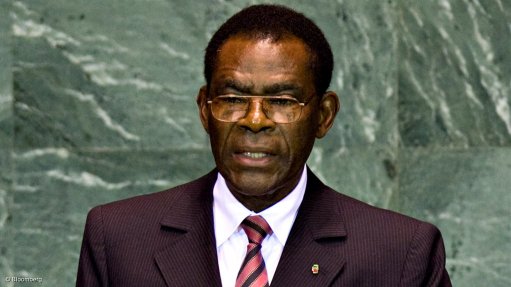Collusion, Cartel, Price Fixing, who will be next?
This article has been supplied as a media statement and is not written by Creamer Media. It may be available only for a limited time on this website.
This isn’t the first time collusion has been a theme on the SA business agenda. In the last few years, we have seen multiple companies settling with the Competition Commission, from listed to multi- listed companies across all sectors. The construction sector is the most prevalent of the sectors, particularly if we refer back to the tender process around the FIFA Soccer World Cup 2010, and not to forget the bread price-fixing saga of Tiger Brands.
In the metal industry, an example is ArcelorMittal. “ArcelorMittal SA’s R1.5bn fine for price fixing sends a strong message of deterrence and is an important milestone in the commission’s enforcement against cartels,” Commissioner Tembinkosi Bonakele said on 22 August. AMSA has agreed to pay the penalty over five years as from 2017 at instalments of no less than R300m per annum, the Commission said.
As this continues to be a common theme in SA, the question on most of our minds is WHO IS NEXT? It almost seems that in some cases in the business community that collusion is ‘second nature’ to companies’ business strategies.
SAA is also under significant pressure from the Commission around the buying/selling of aircrafts, as well as collusion around ticket prices in the aviation industry. So, what is the possibility that mining companies could collude around resources, in terms of when to sell into the market and at what price? I believe that we will be hearing and seeing more from the Competition Commission on the mining sector soon.
However, as an auditor I can’t help but look at the above stories and wonder ‘what were the audit committees, board committees and the corporate governance processes at those companies?’ Why, after these stories emerge do we not hear about the replacement or ‘sacking’ of the decision makers behind these collusions? Surely unethical business decisions are not something any organisation wants to be known for and it takes a special kind of personality to be ‘collusion’ inclined, so where is the change? A fine means nothing when the company has reaped far more in profits from the collusion than the cost of the fine.
The difficulty from an audit point of view is that there isn’t always an audit trail to follow when it comes to collusion as these discussions usually take place outside normal business discussions. As such, these conspiracies are by nature secret and difficult to detect.
However, there could be some reprieve coming in July 2017 when the final amendments to the IESBA (International Ethics Standards Board for Accountants) relating to “Responding to Non-Compliance with Laws and Regulations” comes into effect. This board could possibly reduce the potential breaches as these standards will apply to all categories of professional accountants, including auditors, other professional accountants in public practice, and professional accountants in organisations, including those in businesses, government, education, and the not-for-profit sector. It will address breaches of laws and regulations that deal with matters such as fraud, corruption and bribery, money laundering, tax payments, financial products and services, environmental protection, and public health and safety.
Among other matters, the amended sections of the standard provide a clear pathway for auditors and other professional accountants to disclose potential non-compliance with laws and regulations to appropriate public authorities in certain situations, without being constrained by the ethical duty of confidentiality. It also places renewed emphasis on the role of senior-level accountants in businesses to promote a culture of compliance with laws and regulations, and prevention of non-compliance, within their organisations.
Although IESBA will only apply to certain professionals, these amendments to the existing standard could result in more accountability on management in the future. Only time will tell...
Comments
Announcements
What's On
Subscribe to improve your user experience...
Option 1 (equivalent of R125 a month):
Receive a weekly copy of Creamer Media's Engineering News & Mining Weekly magazine
(print copy for those in South Africa and e-magazine for those outside of South Africa)
Receive daily email newsletters
Access to full search results
Access archive of magazine back copies
Access to Projects in Progress
Access to ONE Research Report of your choice in PDF format
Option 2 (equivalent of R375 a month):
All benefits from Option 1
PLUS
Access to Creamer Media's Research Channel Africa for ALL Research Reports, in PDF format, on various industrial and mining sectors
including Electricity; Water; Energy Transition; Hydrogen; Roads, Rail and Ports; Coal; Gold; Platinum; Battery Metals; etc.
Already a subscriber?
Forgotten your password?
Receive weekly copy of Creamer Media's Engineering News & Mining Weekly magazine (print copy for those in South Africa and e-magazine for those outside of South Africa)
➕
Recieve daily email newsletters
➕
Access to full search results
➕
Access archive of magazine back copies
➕
Access to Projects in Progress
➕
Access to ONE Research Report of your choice in PDF format
RESEARCH CHANNEL AFRICA
R4500 (equivalent of R375 a month)
SUBSCRIBEAll benefits from Option 1
➕
Access to Creamer Media's Research Channel Africa for ALL Research Reports on various industrial and mining sectors, in PDF format, including on:
Electricity
➕
Water
➕
Energy Transition
➕
Hydrogen
➕
Roads, Rail and Ports
➕
Coal
➕
Gold
➕
Platinum
➕
Battery Metals
➕
etc.
Receive all benefits from Option 1 or Option 2 delivered to numerous people at your company
➕
Multiple User names and Passwords for simultaneous log-ins
➕
Intranet integration access to all in your organisation


















